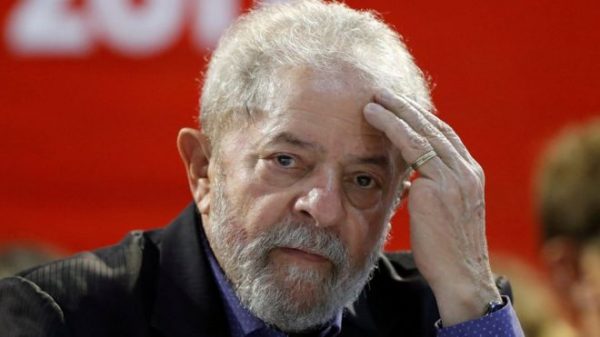
Former Brazilian leader Luiz Inacio Lula da Silva, a top contender to win next year’s presidential election, was convicted on corruption charges on Wednesday and sentenced to nearly 10 years in prison.
The ruling marked a stunning fall for Lula, who will remain free on appeal, and a serious blow to his chances of a political comeback.
Lula was Brazil’s first working-class president and remains a popular figure among voters after he left office six years ago with an 83-percent approval rating. The former union leader won global admiration for transformative social policies that helped reduce stinging inequality in Latin America’s biggest country.
The verdict represented the highest-profile conviction yet in the sweeping corruption investigation that for over three years has rattled Brazil, revealing a sprawling system of graft at top levels of business and government and throwing the country’s political system into disarray.
Judge Sergio Moro found Lula guilty of accepting 3.7 million reais ($1.2 million) worth of bribes from engineering firm OAS SA, the amount prosecutors said the company spent refurbishing a beach apartment for Lula in return for his help winning contracts with state oil company Petroleo Brasileiro (PETR4.SA).
Federal prosecutors have accused Lula, who first took the presidency in 2003, of masterminding a long-running corruption scheme that was uncovered in a probe into kickbacks around Petrobras.
Lula’s legal team has previously said they would appeal any guilty ruling. They have continuously blasted the trial as a partisan witchhunt, accusing Moro of being biased and out to get Lula for political reasons.
Moro has denied the accusations.
Lula’s lawyers did not immediately respond to requests for comment.
Senator Gleisi Hoffmann, the head of the Workers Party, lashed out at the ruling, saying Lula was convicted to prevent him from running for the presidency next year. She said the party would protest the decision and was confident the ruling would be overturned on appeal.
The Brazilian real BRBY extended gains following Moro’s decision and reached its strongest in two months. The benchmark Bovespa stock index .BVSP rose to a session high. Investors fear that another Lula presidency would mean a return to more state-directed and less business friendly economic policies.
REUTERS

Leave a Reply
You must be logged in to post a comment.